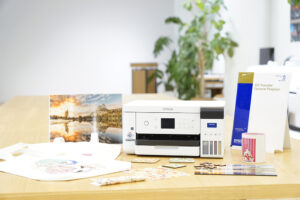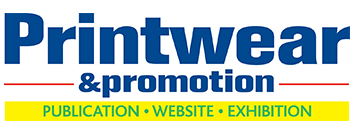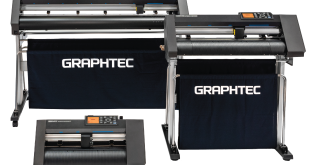
P&P editor Melanie Attlesey sat down for an exclusive interview with Phil McMullin, UK sales manager Pro Graphics, Epson UK, to find out more about what the company is doing to help start-up businesses in the UK during 2021.
For workers in any sector, the coronavirus pandemic meant last year was unpredictable to say the least. Despite the government’s furlough scheme, redundancies reached a record high of 395,000 in the three months to November 2020.
The Office for National Statistics predicts that UK unemployment is likely to reach 2.6 million by the middle of 2021. That’s 7.5% of the working-age population out of work.
Given these statistics is it any wonder that the number of start-up businesses is also on the increase in the UK? Despite the events of 2020, nearly half a million new businesses were registered in the UK, according to Companies House.
It seems that with 9.9 million UK jobs furloughed during 2020 and redundancies on the rise, many UK adults are using this circumstance as the perfect springboard to pivot their careers and start their own business.
Ideal career path
And that’s where garment decoration comes into its own. With relatively low start-up costs and with very little training required, it is the ideal career path for someone who wants a flexible job, working from home.
Epson recognised this as a movement several years ago and as such over the last few years has introduced products geared towards home workers and start-ups.
Before divulging more about what these products are, here’s an insight into Epson’s background. The company began in the photographic sector with the aim of developing printers that produced highly photographic prints that looked as good on paper as they did through the lens. Utilising this technology and expertise Epson took this knowledge and moved into the dye sublimation arena with the launch of its first printer around a decade ago. “This was borne out of a demand from the market for a printer that produced high quality prints, but was also reliable and consistent,” says Phil.
Dye sublimation printers at the time were water-based aqueous printers that had been adapted to use dye sublimation inks. Phil explains these worked to a point, but created a lot of issues for the operator. When Epson introduced its first dye sublimation products into the market, Phil says that they were instantly successful, in particular the 44in model, as there was nothing out there that was matched in quality and consistency. Every part of the printer was manufactured and developed from the ground up by Epson, including the print head, the chassis and the inks.
Global R&D
Fast-forward a decade and today, Epson spends $1.2 million a day globally on research and development to ensure a continued raft of high-quality products enter the market. The company’s most recent innovation aimed at small businesses and start-ups was the SureColor SC-F100. Launched last autumn, this is the company’s first A4 dye sublimation printer. With many start-up garment decorators finding their feet in the personalisation and gifting sector, this desktop-sized printer is perfect for producing promotional and personalised goods such as mugs, key fobs, phone covers and other small merchandise items.

“There was never any doubt in our mind that now was the right time to launch the SC-F100. Particularly with what we were experiencing with the home-working market during lockdown. Our only regret is not being able to get product to our customers as quickly as what we would have liked,” says Phil.
One of the main aims with the SC-F100 was to introduce a printer with ongoing low running costs for the operator. There’s an old saying that ink often costs the same as vintage Champagne, but Phil says a conscious effort was made to offer the ink at the same price as production ink. “This creates a fair, level playing field for those in small cottage industries operating the SC-F100,” he says. “They are not being penalised by Epson by charging huge amounts extra per ml for the ink. This gives them the opportunity to sell their finished product at a reasonable margin. This keeps our industry growing in that sector.”
Accelerated trends
Phil adds that the UK lockdown only served to accelerate trends that Epson had been seeing in the market place for some time. In particular the rise in personalised gifts and awareness of sustainability, which he adds is being driven by the younger generation who are willing to pay more for a personalised item unique to them, but also want a more environmentally-friendly and carbon neutral product.
Not only is Epson focused on product development, but also on education. For the last two years Epson has worked alongside its partner Your Print Specialists to put lost skills back into the UK market place. “It’s all very well saying that you can print something, but if you then haven’t got the skillset to turn that into a cushion, a garment or a pair of curtains, then that’s a problem,” says Phil.

In conjunction with support from Epson and Anthony Devine at the Ministry of Upholstery, YPS has been educating small business and home-workers up and down the country on how to produce high-quality finished products for several months now.
Most recently YPS identified a gap in the market for home-workers and so launched a concept designed at helping people set up a complete business that can operate from home. The Business in a Box contains an Epson SC-F500 24in roll-to-roll dye sub printer, a PixMax heat press, a Singer heavy duty sewing machine and a starter kit of thread, transfer paper and inks. The aim of the box is to remove the restrictions normally faced by creatives and entrepreneurs, such as costs, space, skills and financial barriers. In addition to this, customers can also book to join one of YPS’ training courses to further enhance their skills.
“All you need is a bit of creativity,” says Phil.
Both the SC-F100 and SC-F500 are very much aimed at the micro business and home-working market. They are great examples of getting the technology into your own home at low-cost.
Return to UK manufacture
This recent drive to bring manufacturing back to the UK has increased due to the double whammy of Brexit and lockdown, which have made getting product into the country fairly tricky throughout 2020. “It’s been difficult enough getting product in from Europe, let alone the Far East,” says Phil. “There aren’t enough containers in the Far East to load up and even if you can get hold of a container at a reasonable price, there is no guarantee that you can get it into a UK port. All of this has compounded and left people thinking ‘how about we make it here’.”
Research
When looking to start up in garment decoration, Phil says that one of the most important things to do is research. Research your target market, research your equipment and research your suppliers.
Phil says that Epson has chosen to work with the resellers it does because of the experience and expertise they hold. These resellers, such as YPS, iSub and Xpres, are able to make recommendations on other products such as heat presses, RIP software and blank products to ensure your business gets off to the right start.
For Epson, 2020 was also an entirely unpredictable year. In the textile market, the company experienced sales in the UK that were double the previous year. Phil says these results were in part driven by new product launches, but on a whole they were completely unexpected as they didn’t anticipate 2020 panning out the way it did.
He adds: “When lockdown hit in March and everyone went home, we were extremely worried how this would impact our business across the board. Launching new products during a global pandemic wasn’t the easiest, especially with live events cancelled. Myself and my team have quickly learnt how to be television presenters. We could all get a job with QVC now!”
Confidence in 2021
Phil says Epson is fairly confident that the UK economy will bounce back in 2021 and as such they expect the next 10 months will result in another great year of sales. These sales will be driven by further product launches planned for the textile market in the autumn.

“Epson as a global business has identified textile as a big focus area. Because of this transition from analogue print to digital print, and the reshoring of the textile industry back to the UK, Epson is definitely targeting textile as an investment area. A big chunk of the money we spend daily on R&D is now being spent on the textile market,” says Phil.
Phil is keeping shtum about these new products, but is willing to say that they will be specifically aimed at the personalisation market, for example the printing of T shirts, tote bags, drinks bottles, key rings, mouse mats, and all other manor of things. So, keep your eyes peeled for further details later in the year.
Just like the rest of the UK, Epson has every reason to be positive about the next 10 months as we see the back of the pandemic that has ruled our lives for the past year. Here’s to a great 2021 for both start-ups and established businesses alike.
 Printwear & Promotion The Total Promotional Package
Printwear & Promotion The Total Promotional Package




